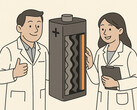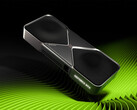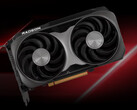The multibillion AI6 chip deal that Tesla signed with Samsung seems to be as much about vertical integration as hedging against geopolitical tensions. The 2nm Tesla AI6 chip will enter mass production in 2028, according to industry analysts, with peak output set for the 2029-2032 period.
Korean media, on the other hand, claims that Samsung has already started the planning work on the AI6 chip manufacturing, but the initial designs are for the next Optimus humanoid robot generation and the Dojo FSD supercomputer clusters, rather than Tesla vehicles.
The AI6 chip may not land in Tesla cars first
This raises some eyebrows, as Elon Musk said at the last quarterly call that Tesla aims to use the same AI6 chip in all of its products that require it, such as cars, robots, and the massive Dojo computer vision project. At the same time, he mentioned that Tesla's vehicles will start receiving the next generation self-driving hardware at the end of 2026 and the AI5 chip there is so "spectacular" that it might clash with the US government's export controls on AI computing power.
It seems unlikely that Tesla will bother designing the AI5 chip and entrusting its 3nm production node to TSMC just to install it in cars for a year and then move to the 2nm Samsung AI6 in 2028. The initial AI6 batches may go into Optimus robots and Dojo computer clusters, while Tesla vehicles with AI4 and AI5 chips still cruise around piggybacking on FSD algorithm optimizations crafted by Dojo.
Tesla likely chose Samsung because of the price and the production capacity, since it's not a core customer for TSMC. Samsung will let Tesla co-develop the AI6 silicon, too, with Elon Musk mentioning that he will personally inspect the production lines at the Taylor, TX foundry to look for optimization and cost reduction opportunities.
Tesla turns to Korean suppliers for AI chips and batteries
The switch to chips made by Samsung in Texas would allow Tesla to pivot from TSMC and the potential for geopolitical tensions there, while meeting any made-in-US government mandates or subsidies and still designing its AI chips internally.
Tesla's move away from suppliers associated with China when it comes to critical EV components, like AI computing and batteries, is on display in its upcoming models. Instead of using CATL batteries for the new Model 3+ in China, Tesla will release it with the LG ternary pack that powers the Model Y. Not only does the LG battery come with higher energy density, but it may also make the sedan suitable for markets where CATL cells would face tariffs or other restrictions.
The new six-seat Model Y L trim that will be released in the fall carries the same pack, while Tesla has also signed a $4.3 billion deal for energy storage batteries with LG, solidifying the pivot from Chinese companies to Korean ones as suppliers.
Samsung vs TSMC for 2nm Tesla AI6 chips
As for Samsung, the deal is a godsend for its foundry business. Its homebrew Exynos chips, which power phones like the Galaxy Z Flip 7 that is currently $200 off on Amazon, have often proved inferior compared to Qualcomm's Snapdragon line due to challenging thermals compared to the TSMC foundry production.
Samsung was struggling with the 2nm GAA production method yield, too, but improved it from the initial paltry numbers to around 40%, and should hit the necessary 60% or above yield at the Taylor foundry once the new equipment is installed next year. If it doesn't, it may still be making the AI6 chip at cost or worse, but the loss-making order from Tesla is reportedly being considered worthwhile, as it breaks TSMC's iron grip on modern chip production processes.
After all, the TSMC foundry in the US can only produce 7% of the chips that American companies need, and this might be one of the reasons why Tesla picked Samsung and its Texas foundry that Elon Musk joked is "conveniently located not far from my house."




































